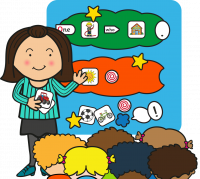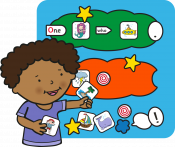Teaching Key Stage One Story Writing
The Importance of Story Writing
Story writing plays a crucial role in developing your pupils' literacy skills, imagination, and creativity. It helps them improve their vocabulary, sentence structure, and understanding of narrative elements.
By teaching them how to construct a story, you're not only enhancing their writing abilities but also fostering their ability to express themselves and communicate effectively.
Planning Engaging Lessons
 When planning your story-writing lessons, it's essential to consider the interests and abilities of your pupils. Incorporate topics and themes that resonate with them, such as their favourite animals, superheroes, or adventures. This will help maintain their engagement and motivation throughout the writing process.
When planning your story-writing lessons, it's essential to consider the interests and abilities of your pupils. Incorporate topics and themes that resonate with them, such as their favourite animals, superheroes, or adventures. This will help maintain their engagement and motivation throughout the writing process.
Break down the writing process into manageable steps, starting with brainstorming ideas, creating a story map, and developing characters and settings.
Encourage your pupils to use their imagination and think creatively.
Utilising Technology
Being tech-savvy can be a tremendous asset in today's classroom. Explore digital tools and resources that can support your teaching and help save you time.
There are various story writing apps, online story generators, and interactive writing platforms that can provide your students with an immersive and engaging writing experience.
Encouraging Collaboration and Peer Feedback
Collaborative writing activities can be highly beneficial in Key Stage One.
Create opportunities for children to work in pairs or small groups, allowing them to share ideas, provide feedback, and learn from each other. This fosters a sense of community and helps develop their social and communication skills.
Encourage peer feedback by implementing a structured feedback system, such as the "Two Stars and a Wish" technique. This involves students giving two positive comments (stars) and one constructive suggestion (wish) to their peers' writing. It promotes a supportive and constructive learning environment.
Incorporating Different Writing Prompts
Variety is key to keeping children engaged and motivated. Incorporate a range of writing prompts to cater to different learning styles and interests. Some pupils may prefer visual prompts, such as pictures or illustrations, while others may respond better to written prompts or storytelling prompts.
Showcasing Work
 Recognise and celebrate your pupils' achievements by creating opportunities to showcase their story writing.
Recognise and celebrate your pupils' achievements by creating opportunities to showcase their story writing.
This can be done through class displays, publishing a class book, or even organising a storytelling event where children can read their stories aloud.
